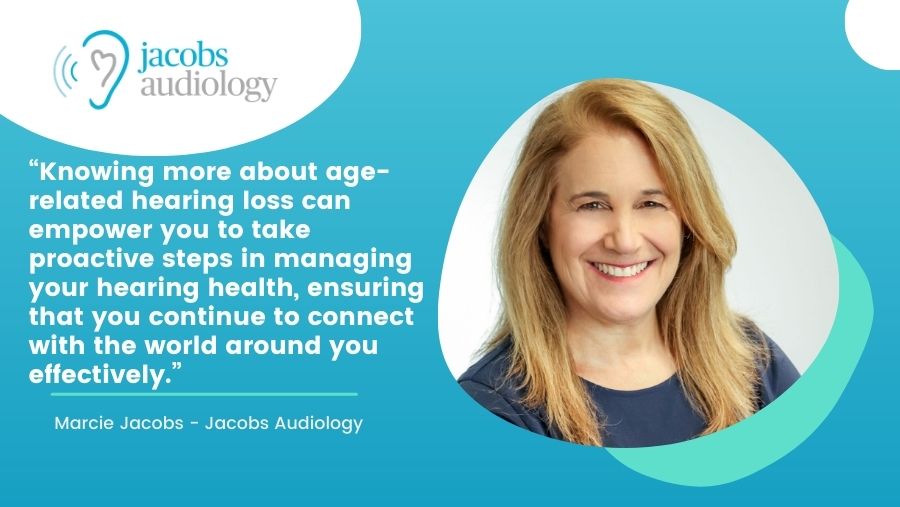Presbycusis, or age-related hearing loss, affects many as they age. It’s characterized by a gradual decline in hearing ability. If you’re noticing that conversations have become more challenging to follow, especially in environments with background noise, then you might be experiencing presbycusis.
Knowing more about age-related hearing loss can empower you to take proactive steps in managing your hearing health, ensuring that you continue to connect with the world around you effectively.
Causes and Risk Factors
The progression of presbycusis is primarily due to the natural aging process of the auditory system. But there are also two other main factors that can increase your risk of presbycusis.
Firstly, long-term exposure to loud noises can gradually damage the tiny hair cells in your ears, which are crucial for hearing.
And secondly, each person’s risk can also be influenced by genetic predispositions, meaning you might be more susceptible if others in your family have experienced similar hearing challenges.
While age is a significant factor, understanding these additional risks helps you take informed steps toward protecting your hearing health as much as possible.
Symptoms to Watch For
You might notice several symptoms indicating the onset of presbycusis.
Some of the early signs are difficulty hearing high-frequency sounds and understanding speech in noisy environments. You might also find that sounds are starting to seem muffled, making it challenging to follow conversations or listen to your favorite music with clarity.
Recognizing these symptoms early can lead to timely intervention, which can greatly improve your quality of life and hearing experience.
How Age-Related Hearing Loss Impacts Quality of Life
Hearing is central to how you interact with and perceive the world.
When presbycusis starts affecting you, it may lead to communication challenges, such as misunderstanding spoken words, leading to potential frustration in everyday interactions.
Emotionally, this can result in feelings of isolation or withdrawal from social activities, as participating in conversations becomes an exhausting task.
Recent studies have linked hearing challenges to both cognitive decline and anxiety. Thus, addressing hearing challenges doesn’t just help your hearing; it can enhance your overall well-being.
Diagnosis and Management
To ensure your hearing remains as sharp as possible, regular hearing assessments are crucial. These assessments, performed by qualified hearing health experts, can diagnose the extent of hearing loss and help tailor a management plan that suits your specific needs.
By prioritizing regular checkups, you set the foundation for maintaining an active and engaged lifestyle. Your hearing health professional will walk you through the best options for your unique ears, ensuring that treatment for your hearing challenges is tailored for your specific needs.
Hearing aids designed specifically for age-related hearing loss are highly recommended, as they can significantly enhance your ability to hear and understand speech, especially in environments with background noise.
Additionally, assistive listening devices can complement hearing aids, offering further support in difficult hearing situations. Embracing these technologies means you can enjoy conversations, music, and other sounds with renewed clarity and joy.
Take Charge of Your Hearing Health
You’re not alone in this journey, and taking the step to address your hearing concerns can profoundly improve your quality of life.
Visit us for comprehensive hearing care that reflects our commitment to helping you manage presbycusis effectively. Our team is ready to provide the compassionate and professional support you deserve.
Contact us to schedule your hearing assessment or request a callback to get started on your path to better hearing today!





